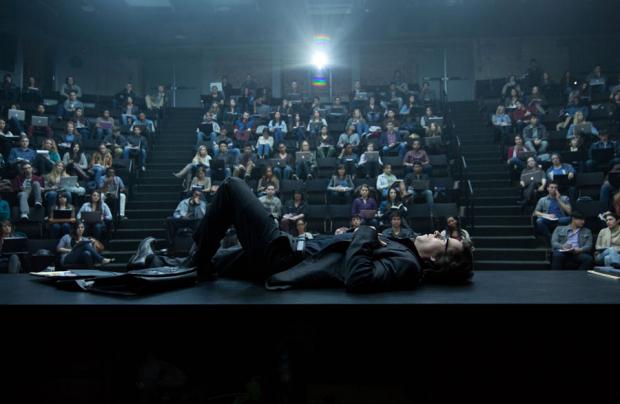The Gambler: When the Dealing's Done
It’s unlikely that many people buying tickets for this will have seen the 1974 film on which it is based. Which is just as well.
The original is streaming on Netflix, and it’s well worth seeing, especially if you’re a fan of 1970s cinema. James Caan gives the best performance of his career as a character based on screenwriter James Toback’s early life, a writer and academic from a privileged background with a gambling problem. It’s an exercise in existentialism not lacking in macho posturing (like all of Toback’s work), but as directed by Karel Reisz it’s both plausible and powerful.
The new version was written (over the initial objections of Toback) by William Monahan, who won an Oscar for another adaptation, Martin Scorsese’s The Departed, which also starred Mark Wahlberg. The difference between their two conceptions of the character is the difference between an anti-hero and a jerk. Renamed Jim Bennett here, he’s an arrogant pseudo-rock star in Armani jackets who seems motivated by a desire to encourage someone else to kill him and put him out of his misery.
And what is that nature of his misery? As one antagonist puts it, “Looks, breeding, money, success—that must be such a hard burden to bear.”
Bennett is also a novelist tortured by his own mediocrity (though we have only his word to take for that—everyone who reads his book seems to like it). In the film’s most ridiculous scene, he subjects his college class in the Modern American Novel to an endless tirade under a projected enlargement of the cover of Camus’s The Stranger. (Apparently the cover is all you need to judge a book.)
The Gambler is ripe with exchanges of writerly dialogue, much of which is entertaining, especially as delivered by Michael Kenneth Williams and John Goodman (whose speech on earning the right to say “Fuck you” is almost as good as Monahan thinks it is). Wahlberg is good with the lines too, but they erect a wall around a character who is already doing everything possible (beginning with his haircut) to annoy us.
Directed by Rupert Wyatt (Rise of the Planet of the Apes), the film is glossy and shiny, giving it a superficial sheen that doesn’t make any sense. And its treatment of gambling is shameful—any virtues in the film are negated by a bullshit ending that everyone involved should be ashamed of.
(Casting note: Wahlberg’s dying grandfather in the opening scene is played by George Kennedy, who I would have sworn left us a decade ago.)

